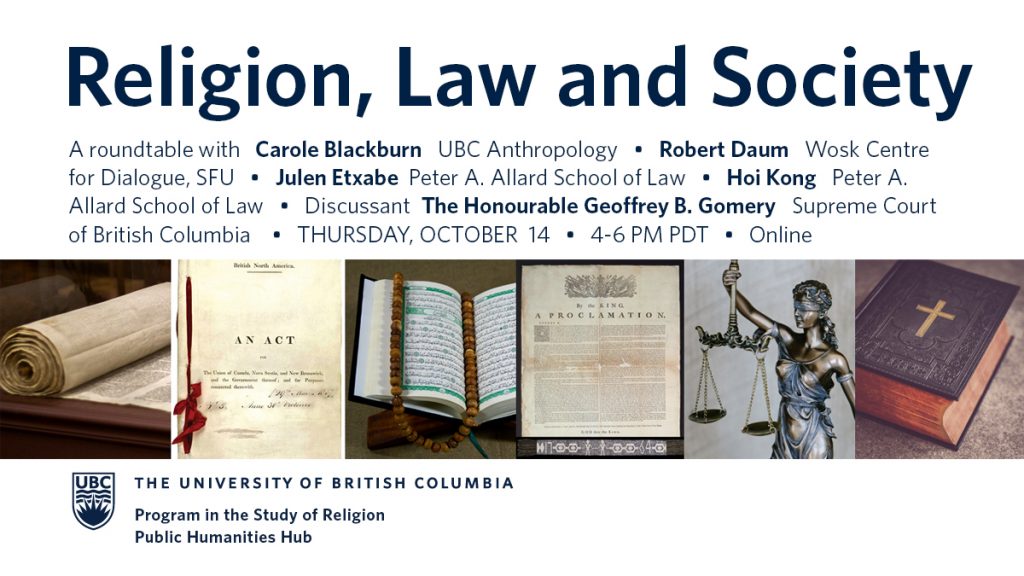
Images from Parliament of Canada, Canadian Museum of History, Library and Archives Canada, and Unsplash.
The UBC Program in the Study of Religion and the Public Humanities Hub are pleased to present a roundtable of scholars discussing Religion, Law and Society.
Presenters:
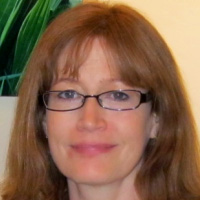 Carole Blackburn, Associate Professor of Anthropology
Carole Blackburn, Associate Professor of Anthropology
Title: Defending Grizzly Bear Spirit in Canadian Courts: Ktunaxa First Nation v. British Columbia
This paper addresses the challenge of protecting the religious freedom rights of Indigenous peoples in Canadian courts. In 2017 the Ktunaxa First Nation appealed to the Supreme Court of Canada to prevent the construction of a ski resort in Jumbo Valley in southeastern British Columbia. For the Ktunaxa, Jumbo Valley is a sacred site that is home to Grizzly Bear Spirit. They argued that the construction of the resort would cause Grizzly Bear Spirit to leave the area and that this would violate their Charter right to freedom of religion. The majority of the Supreme Court ruled that Section 2(a) of the Charter protects freedom of belief but not the actual objects of belief, like Grizzly Bear Spirit. In this paper I draw attention to the conceptual gap between land-based spiritual beliefs and an approach to religion as an individualized practice separate from place that is reflected in this judgment.
Bio: Dr. Carole Blackburn is an Associate Professor in the Department of Anthropology at UBC. Her research focuses on law and rights as tools that Indigenous people use to mediate their relationships with states. Dr. Blackburn has written on the legal, political and cultural consequences of treaty making in Canada and the challenges of litigating loss of culture in residential school litigation.
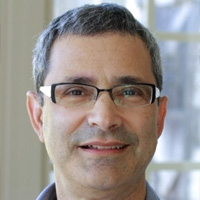 Robert Daum, Fellow, Wosk Centre for Dialogue, Simon Fraser University
Robert Daum, Fellow, Wosk Centre for Dialogue, Simon Fraser University
Title: Harmful Speech: Aspects of Rabbinic teachings about intent, impact and culpability
Rabbinic analysis of problematic speech is an intriguing subject, given the importance of speech as a poetic device and literary motif in the biblical tradition, the force of verbal utterances in rabbinic jurisprudence, and the prestige of learned oral discourse as a social practice in rabbinic culture. Premodern Jewish traditions consider slander, gossip, and deceit from the academy to the marketplace. These sources also problematize ostensibly unverified legal traditions. They deride insufficiently critical, scholarly discussion. They flag the danger of senior judges intimidating junior colleagues. They lament lost or “forgotten” teachings by marginalized scholars. They condemn speech calculated to cause public shame. One undefined category of tort law, “verbal wronging”, is applied to subtle cases, where it is impossible to prove intentional infliction of commercial or personal harm. This material might be usefully applied to present-day considerations of intent, impact, and culpability in cases of micro-aggression and related issues.
Bio: Robert A. Daum (PhD, UC Berkeley) is a Fellow at SFU’s Wosk Centre for Dialogue. He researches rabbinic legal literature and history, talmudic poetry, gender and queer studies, authority construction, hate crime, comparative religion and human rights. He collaborates with universities and governments to advance EDI+ and reconciliation.
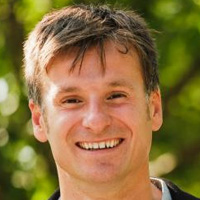 Julen Etxabe, Assistant Professor and Canada Research Chair (Tier 2) in Jurisprudence and Human Rights, Allard School of Law
Julen Etxabe, Assistant Professor and Canada Research Chair (Tier 2) in Jurisprudence and Human Rights, Allard School of Law
Title: What’s the scandal? The tension between religious autonomy, human rights and the state
In this presentation I will speak about Fernández Martínez v. Spain, a decision by the European Court of Human Rights concerning a catholic priest and teacher of religion who was fired from his teaching post for the “scandal” of being married. As member of the Movement for Optional Celibacy, the priest had applied for a dispensation from the Vatican a decade earlier without response, but was fired from his teaching post soon after a local newspaper made his condition public. In a close 9 to 8 split decision, the Grand Chamber found no violation of the applicant’s rights.
My presentation will address some of the challenges of the decision, including the obligation to strike a proper balance between the autonomy of religious organizations and the fundamental rights of their members, such as the right to private life (Art 8) and non-discrimination on account of marital status (Art 14). My comments will center on the religious notion of “scandal” and on whether freedom of religion bars the state from inquiring into the circumstances giving rise to it.
Bio: Julen Etxabe is Assistant Professor and Canada Research Chair (Tier 2) in Jurisprudence and Human Rights at Allard School of Law. He is the author of The Experience of Tragic Judgment (Routledge 2013) and the editor of three other books, including Cultural History of Law in Antiquity (Bloomsbury, 2019) and Rancière and Law (Routledge 2018). His current project seeks to unearth a dialogical form of judgment emerging in the context of International Human Rights.
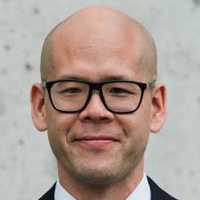 Hoi Kong, The Rt. Hon. Beverley McLachlin, P.C., UBC Professor in Constitutional Law
Hoi Kong, The Rt. Hon. Beverley McLachlin, P.C., UBC Professor in Constitutional Law
Peter A. Allard School of Law
Title: What’s Law Got to Do With It? Religion Through the Lens of Law
Freedom of religion aims at two goals: preventing the state from interfering with religious beliefs and practices, on the one hand, and requiring the state to remain neutral with respect to religions, on the other. Yet in some circumstances, these two goals will conflict. For instance, neutral laws will in some instances interfere with religious beliefs and practices. When courts adjudicate these kinds of cases, does one of these goals necessarily take precedence over the other? This presentation will attempt to answer this question and illuminate the question’s significance for our understanding of the relationship between law and religion.
Bio: Professor Hoi Kong is the inaugural holder of The Rt. Hon. Beverley McLachlin, P.C., UBC Professorship in Constitutional Law, which he assumed in 2018. He researches and teaches in the areas of constitutional, administrative, municipal and comparative law, and constitutional and public law theory. He has also taught at McGill University’s Faculty of Law, where he served a term as Associate Dean (Academic), at Queen’s University, and at the Columbia Law School. Professor Kong clerked for Justice L’Heureux-Dubé and Justice Deschamps at the Supreme Court of Canada.
Discussant:
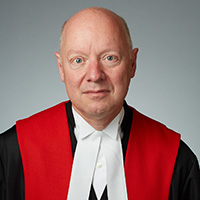 The Honourable Geoffrey B. Gomery, Justice, Supreme Court of British Columbia
The Honourable Geoffrey B. Gomery, Justice, Supreme Court of British Columbia
Bio: The Hon. Justice Gomery received his LLB from the University of Toronto in 1983 and a Bachelor in Civil Law from Oxford University in 2005. He practiced as a partner with Nathanson, Schachter & Thompson LLP and became Queen’s Counselor in 2010. He became a Fellow of the Chartered Institute of Arbitrators in 2018. Since 2012, he has served as an Adjunct Professor at the University of British Columbia, teaching a course he created on the law of restitution. In 2018, he was appointed Justice of the Supreme Court of British Columbia.
Thursday, October 14, 2021
4:00 – 6:00 pm PST
Online via Zoom Webinar
Free
This event will be recorded and posted publicly.